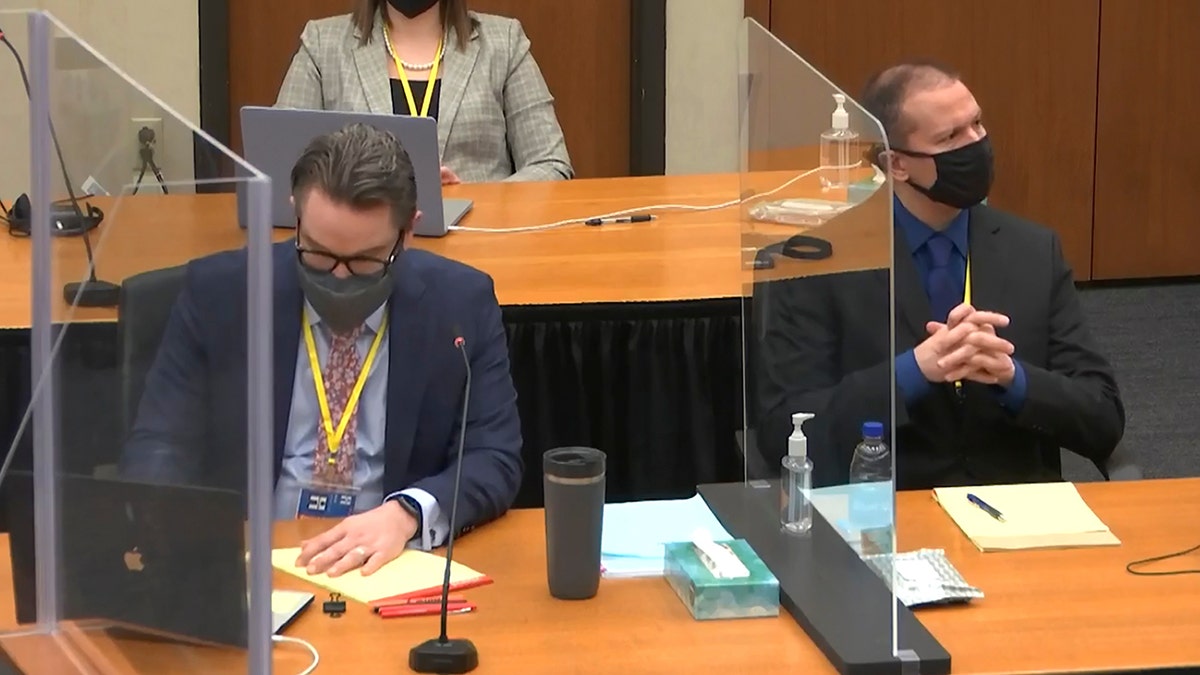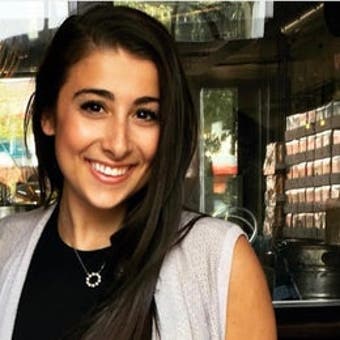The trial for former Minneapolis police officer Derek Chauvin, who faces murder and manslaughter charges in connection with the death of George Floyd, continued into its fourth day on Thursday, with Floyd’s former girlfriend recalling how the pair met and their shared history of narcotics addiction.
Courteney Ross, 45, testified through tears at the Hennepin County Courthouse in Minneapolis, Minn., where Chauvin is standing trial. She recalled how she and Floyd met in 2017 at a Salvation Army shelter where he worked as a security guard. She said they grew addicted to opioids after initially being prescribed them for pain.
"Both Floyd and I, our story, it’s a classic story of how many people get addicted to opioids. We both suffered from chronic pain. Mine was in my neck and his was in his back," Ross told the court. "We both had prescriptions. But after prescriptions that were filled, and we got addicted and tried really hard to break that addiction many times."
LIVE UPDATES: DEREK CHAUVIN TRIAL CONTINUES THURSDAY
Chauvin is accused of killing Floyd after being seen in moments captured on video kneeling on the 46-year-old Black man's neck for 9 minutes and 29 seconds as he lay face-down in handcuffs last May. The most serious charge against the since-fired White officer carries up to 40 years in prison.
CHAUVIN TOLD BYSTANDER FLOYD WAS ‘SIZABLE GUY,’ ‘PROBABLY ON SOMETHING’
The defense has argued that Chauvin did what he was trained to do and that Floyd’s death was caused instead by Floyd’s illegal drug use, underlying health conditions and the adrenaline flowing through his body. An autopsy found fentanyl and methamphetamine in his system.
Ross, who was a prosecution witness, testified that she and Floyd used drugs on and off throughout their three-year relationship. She said they also took the prescriptions of others, as well as illegal drugs. In March 2020, Ross drove Floyd to the emergency room because he was in extreme stomach pain, and she later learned he overdosed, she said.
"Addiction, in my opinion, is a lifelong struggle," she said. "It’s not something that just kind of comes and goes. It’s something I’ll deal with forever."
She described how Floyd used pill-form OxyContin, and said she and Floyd had purchased narcotics from a man named Morries Lester Hall, whose name has also been spelled "Maurice."
Hall was a passenger in Floyd’s car when police approached him on May 25, 2020, as they responded to a call about someone using a forged bill at a shop.
DEREK CHAUVIN TRIAL: KEY WITNESS TO INVOKE THE 5TH AMENDMENT, REFUSES TO TESTIFY
Hall was expected to be a key witness in the state’s investigation into the four officers who apprehended Floyd. But in court papers filed Wednesday, Hall, through an attorney, said he would invoke the Fifth Amendment if called to testify.
Ross said she believed Floyd began using drugs again approximately two weeks before his death, noting that she saw "a change in his behavior."
She said one week prior to his death, she was on the phone with Floyd while he was allegedly purchasing pills and heard a voice in the background that she said she recognized as Hall’s. Ross said she did not physically see Hall or know for certain that it was him.

In this image taken from video, defense attorney Eric Nelson, left, and defendant former Minneapolis police officer Derek Chauvin, right, listen as Hennepin County Judge Peter Cahill presides over jury selection in the trial of Chauvin, Tuesday, March 23, 2021, at the Hennepin County Courthouse in Minneapolis. (Court TV via AP, Pool)
CLICK HERE TO GET THE FOX NEWS APP
Under cross-examination by Chauvin attorney Eric Nelson, Ross said Floyd's pet name for her in his phone was "Mama" -- testimony that called into question the widely reported account that Floyd was crying out for his mother as he lay pinned to the pavement.
In some of the video footage, Floyd can be heard repeatedly calling out, "Mama!" and saying, "Mama, I love you! ... Tell my kids I love them."
Later in the day, Minneapolis EMS worker Seth Bravinder testified that he and his partner were in the downtown section of the city on May 25, 2020, when they received an initial call, which was a "Code 2," meaning routine driving with no lights or sirens, for a "mouth injury with police on scene." It was upgraded shortly thereafter to a "Code 3," which required emergency lights and sirens.
Fox News' Danielle Wallace and David Aaro contributed to this report, as well as The Associated Press.












































